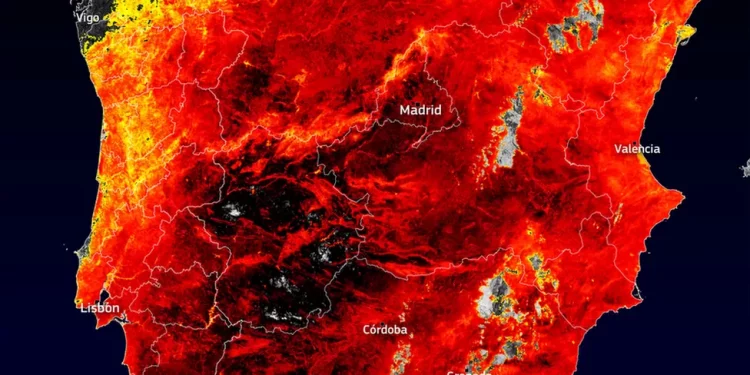A heatwave is currently sweeping across parts of southern Europe and north-west Africa, bringing exceptionally high temperatures and the possibility of breaking temperature records in the coming days. Spain, France, Greece, Croatia, and Turkey are expected to experience temperatures exceeding 40C (104F).
Italy, in particular, faces extreme heat, with temperatures potentially reaching as high as 48.8C (119.8F). The country has issued a red alert warning for 10 cities, including Rome, Bologna, and Florence. Tragically, a man in his forties collapsed and died while painting zebra crossing lines in Lodi, near Milan. Other cases of heatstroke, including a British man near the Colosseum in Rome, have also been reported.
Authorities are urging people to stay hydrated by drinking at least two liters of water per day and to avoid dehydrating beverages like coffee and alcohol. Visitors and locals alike are feeling the impact, with some altering their plans to avoid the hottest parts of the day. Concerns about climate change and the need for collective action to mitigate its effects are voiced by individuals, such as tourists from Australia and Italian locals from Potenza.
The current heatwave, named Cerberus after the three-headed monster in Dante’s Inferno, is expected to continue intensifying in the next few days. Spain has already been enduring scorching temperatures, with some regions reaching up to 45C (113F) during the day and not dropping below 25C (77F) at night. Assistance services have been set up to aid those affected by the heat in Andalusia.
Satellite imagery from the EU’s Copernicus Sentinel mission reveals that the land surface temperature in Spain’s Extremadura region reached a sweltering 60C (140F) on Tuesday.
In the United Kingdom, the Met Office predicts that temperatures will peak on Friday. BBC Weather forecasts that large areas of southern Europe could experience temperatures in the low to mid-40s and possibly higher. As the Cerberus heatwave subsides, Italian weather forecasters warn of another heatwave named Charon, which could raise temperatures to around 43C (109F) in Rome and potentially reach 47C (116F) on the island of Sardinia. The severity of these heatwaves reinforces concerns about climate change and its impact on extreme weather events.



